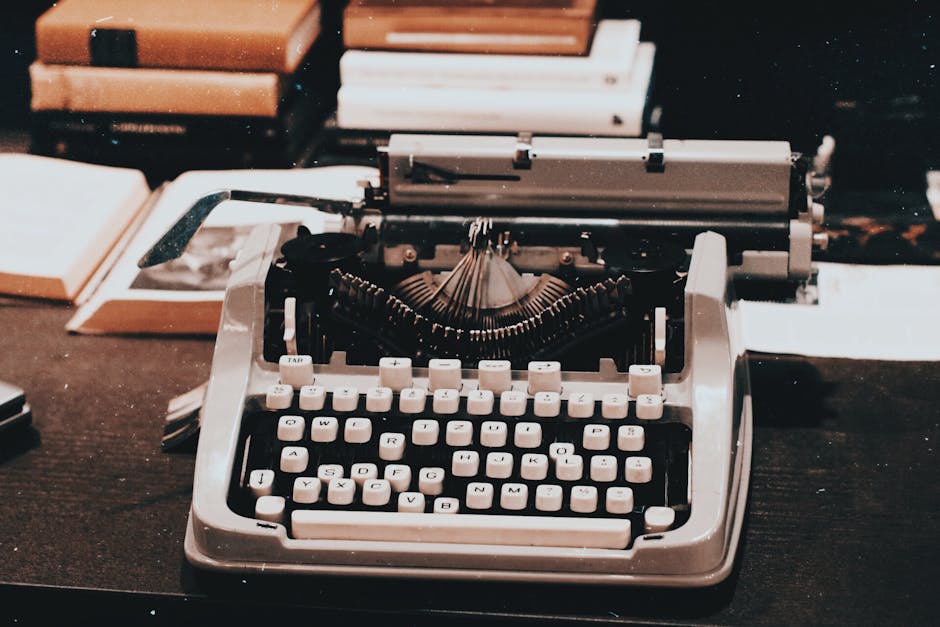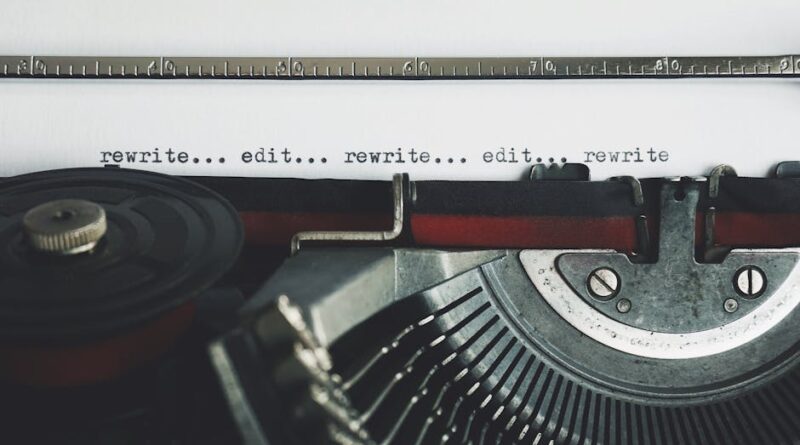The Importance of Editing in Self-Publishing
Did you know that nearly 80% of self-published books fail to find an audience? One of the biggest reasons is poor editing. Editing is essential in self-publishing. It can make the difference between a book that readers love and one that gathers dust. In this article, we will explore why editing matters and how you can make your self-published book shine.
What Is Editing and Why Does It Matter?

Editing is more than just fixing typos. it’s about refining your story, improving clarity, and ensuring consistency. Think of editing as polishing a diamond. You want it to sparkle and stand out.
Here are three key reasons why editing is important:
- Improves Readability: Good editing ensures your book flows smoothly. Readers will enjoy the experience more.
- Builds Credibility: A well-edited book looks professional. It helps build trust with your audience.
- Enhances Story Quality: Editing helps you tighten your narrative. It removes unnecessary parts and focuses on what matters.
What Are the Types of Editing?

Editing comes in several forms, each serving a unique purpose. Understanding these types will help you choose what’s best for your book.
What is Developmental Editing?
Developmental editing looks at the big picture. It focuses on structure and content. An editor will review your plot, characters, and pacing. They might suggest adding scenes or removing parts that don’t work.
What is Copy Editing?
Copy editing focuses on grammar and style. This type of editing catches typos, punctuation errors, and awkward phrasing. A good copy editor ensures your writing is clear and polished.
What is Proofreading?
Proofreading is the final step. It catches any remaining mistakes before publication. Think of it as the last check to make sure everything is perfect.
How Can Editing Improve Your Book?

Editing can transform your rough draft into a masterpiece. Here are a few ways it can help:
- Clarifies Your Message: An editor helps refine your ideas. They make sure your message comes across clearly.
- Strengthens Characters: Through editing, you can develop deeper characters that resonate with readers.
- Enhances Style: A good editor can help you find your unique voice. They can offer suggestions to make your writing more engaging.
How Do You Find the Right Editor?

Finding the right editor is crucial. Here are some tips to help you choose:
What Should You Look For?
Consider the following when looking for an editor:
- Experience: Look for an editor with experience in your genre.
- Style: Make sure their editing style matches your vision.
- References: Check reviews or ask for references from previous clients.
How Can You Work with Your Editor?
Communication is key. Here are some tips for working effectively with your editor:
- Be Open: Accept feedback, even if it’s tough to hear.
- Ask Questions: If you don’t understand something, ask!
- Stay Involved: Participate in the editing process. You know your story best.
Common Misconceptions About Editing
Many authors have myths about editing. Lets clear up a few!
Is Editing Only for Traditional Publishing?
No! Editing is just as important for self-published authors. It helps your work stand out in a crowded market.
can’t I Edit My Own Book?
While you can do a self-edit, it’s hard to catch all your mistakes. A fresh pair of eyes can see what you might miss.
What Are the Costs of Editing?
Edit costs can vary widely. Heres what you might expect:
- Developmental Editing: $0.02 to $0.05 per word
- Copy Editing: $0.01 to $0.03 per word
- Proofreading: $0.01 per word
While editing can be an investment, it pays off in the long run. A well-edited book can lead to better sales and reader satisfaction.
How to Edit Your Book Yourself
If you’re considering self-editing, here are some tips:
- Take a Break: Step away from your manuscript for a few days. This helps you see it with fresh eyes.
- Read Aloud: Hearing your words can help you catch awkward phrases.
- Use Editing Software: Tools like Grammarly can help with grammar and style.
What Are Some Resources for Editing?
Many resources can help you improve your editing skills:
- Books: “Self-Editing for Fiction Writers” by Renni Browne and Dave King is a great start.
- Online Courses: Websites like Coursera offer writing and editing courses.
- Editing Communities: Join online forums or groups where you can share your work and get feedback.
Conclusion: The Path to a Better Book
Editing is a vital step in self-publishing. It can turn your rough draft into a polished gem. don’t skip this crucial phase. Invest in editing, and youll see your book thrive.
Remember, a great book is one that resonates with readers. And that begins with solid editing. So, whether you hire a professional or edit yourself, make sure your work shines.
Actionable Takeaways
Ready to take your book to the next level? Here are some steps to follow:
- Find a reputable editor today.
- Start reading books on self-editing.
- Join writing groups for feedback and support.
For more information on self-publishing best practices, check out Self Publishing Advice. Happy writing!



